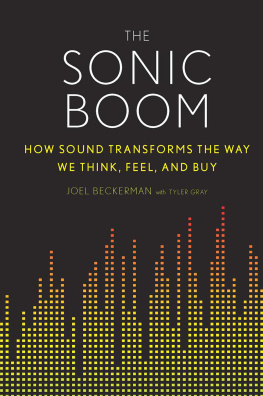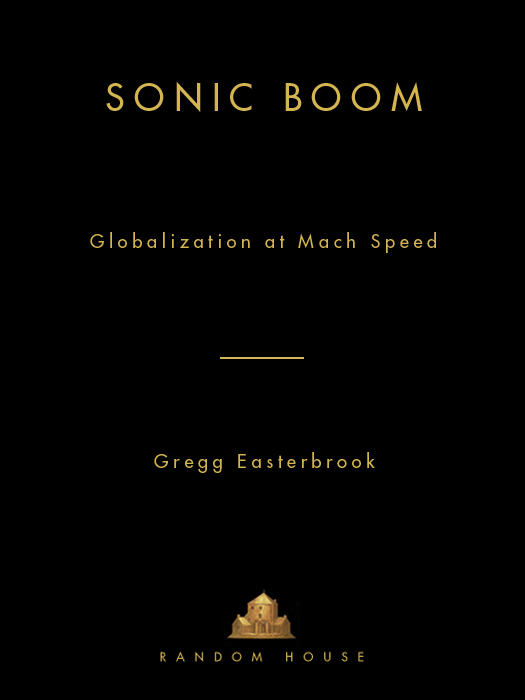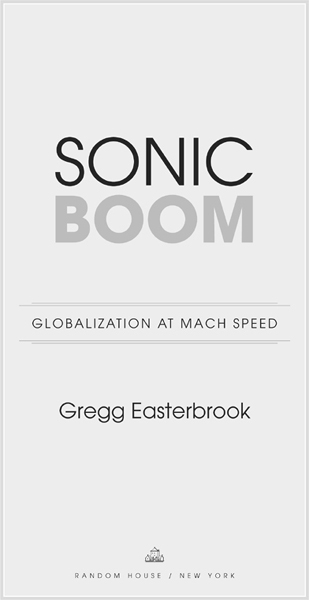Introduction
A Trailer for the Docudrama of the Twenty-first Century
I n 2008, when the world realized the international economy had entered a sharp decline, I was sitting at a desk writing a book about why the international economy would boom. The decline that manifested itself in 2008 had the effect of focusing many peoples minds. Those who lost jobs, or faced foreclosure, or saw their retirement savings damaged by swindlers masquerading as respectable bankers and Wall Street managerstheir minds certainly were focused. My mind was focused on this question: Does it make sense to envision progress when the world seems to be sliding backward?
I came to the conclusion that this does make sense, and the result is the book you now hold. Before the downturn that became apparent in 2008, the larger global economic trend for three decades was rising prosperity for almost everyone, accelerating growth, higher living standards for average people, better education, increased ease of communication, low inflation, few shortages, and more personal freedom across most of the family of nations. History shows that when some crisis interrupts a larger trend, as soon as the crisis ends, the larger trend resumes. For example, global economic trends were mainly favourable before World War II; when the conflict ended, growth resumed, even in nations that were physically devastated by combat. All postwar recessions have ended in a resumption of previous trends. In places where natural disasters cause awful destruction, usually whatever larger trends were under way resume soon after the disaster stops; when the United States was hit by a manmade disaster in September 2001, the pattern of larger trends was not altered. Such precedents suggest that advancing global prosperity is likely to resume. If not this year, then soon, the global economy is likely to be fine. One purpose of a book is to step back from the drumbeat of headlines and consider larger trends. I write this preface knowing you may pick up Sonic Boom on a day when economic news is spooky. Notwithstanding, I believe a substantial rise in human prosperity is coming.
Heres the catch: just as favorable economic and social trends are likely to resume, many problems that have characterized recent decades are likely to get worse, too. Job instability, economic insecurity, a sense of turmoil, the unfocused fear that even when things seem good a hammer is about to fallthese also are part of the larger trend, and no rising tide will wash them away. For a writer sitting at a desk, the recession had a paradoxically useful impact, forcing me to spend just as much time contemplating the negative as the positive. The result is that the book you now hold, while envisioning the likelihood of a global boom, also warns that when it comes to anxiety, we aint seen nothing yet.
What seemed scariest about the downturn that began in 2008 was not the dire unemployment rate, or specific data from bank lending departments or auto sales floors, but rather the fear that world economy was on the verge of unraveling. I dont think this will occur; I expect the reverse. But the fear may be here to stay. What happened in the economic downturn that began in 2008 was a trailer for the docudrama of the twenty-first century: a coming-attractions preview of the rest of your economic life. Dont worry about ordering tickets in advance, since you will be attending the show whether you wish to or not.
Were better off in a hectic, high-tech, interconnected world, for reasons Sonic Boom will spell out in detail. The coming global Sonic Boom may be the best economic news the world has ever received.
But being economically interconnected makes us feel vulnerable, because we can no longer control eventsor at least, we can no longer believe events can be controlled. And that perception of loss of control is likely to accelerate. There will be tremendous pressure on government officials and policymakers to do something, anything, about the sense of accelerating change. Business leaders will be under tremendous pressure, too; soon, to the Fortune 500, Ralph Nader will seem like the good old days. New laws, policies and business plans might cushion the Sonic Boom, and this book will discuss them. But stop change? All the air, naval and ground forces in the world could not accomplish that. Get used to a ceaseless, low-grade sense of economic emergency, even if all goods and services are in ample supply, even if the local grocery store is fully stocked, busy and open twenty-four hours.
Why do I think a world boom is coming? Because though globalization may be driving you crazy, globalization is just getting started. The positive aspectsease of communication, more freedom of speech, markets closely attuned to consumer demand, rising education levels in the developing worldare in their early stages. The world is going to become a lot more global. Though stress-inducing, this will be mainly good.
Because chip-based electronic devices are still relatively new and continue to rise in quality while declining in price, important technological improvements to the world economy are at hand. For example, fairly soonmeaning really soon at the current pace of changemost products will be manufactured using far less energy and producing less waste. Thats the kind of advance for which we have all long hoped.
The conversion of the world to free economics remains in its early stages. You may not like free-market economicslets hope someday there will be a saner, more compassionate system for organizing how we produce, work and spendbut it is inarguable that nearly all of the last centurys improvements in standards of living for average people came from the free-market system. Just a few decades ago, most nations did not benefit from market economics. Most had controlled economies supervised by some form of dictatorship, or feudal economiesthe feudal system, forgotten in the West, continues to be the primary tormentor of the worlds pooror economies that were free domestically but isolated behind import barriers. In the last generation, more and more of the worlds economies have become reasonably free and begun to engage in reasonably open trade. Though the spreading of free economics is well-known, its wrong to assume the impact has already occurred. Most of the impact lies in the future, because most of the world is just becoming accustomed to free markets, with their pluses and minuses. We should expect that in the near future, most of the world will attain the free-market advantages long enjoyed in the West, especially ample goods of rising quality and declining real-currency price.
Many of the benefits of the expansion of democracy remain in the future. A generation ago, according to United Nations figures, only one third of the worlds nations held true multiparty elections; today 80 percent do, and the proportion continues to rise. Many nations have in recent years converted from despotism or autocracy to at least some halting form of democracy, while there is scant movement in the opposite direction. Dear Iran, North Korea and the Arab nations: become democracies. Do you really want to wake up some morning and find yourselves the worlds sole holdouts against progress?















